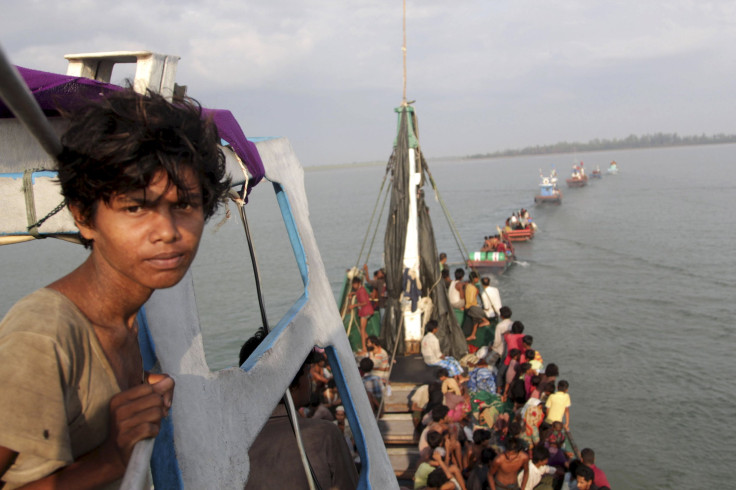Rohingya Migrants: UN Estimates About 3,000 ‘Boat People’ Still At Sea, Myanmar Offers Aid

The United Nations High Commissioner for Refugees (UNHCR) has estimated that more than 3,000 Rohingya refugees and Bangladeshi migrants could still be adrift in the Andaman Sea. The latest estimate comes even as Myanmar reportedly carried out its first rescue of a migrant boat on Friday.
The U.N. agency said that it had evaluated media reports and information gathered from other sources to estimate that the current number of migrants still adrift in the sea could be over 3,000, or more that no one knows of, the Associated Press (AP) reported. The Malaysian navy said that four of its vessels are currently searching for any migrant boats that could still be stuck at sea.
In the last three weeks, over 3,000 people -- including Rohingya minority Muslims from Myanmar and several Bangladeshi economic migrants -- have landed in Indonesia and Malaysia. While the Rohingyas, who accuse Myanmar's government of religious persecution, are being offered a one-year temporary shelter by both countries, the Bangladeshi migrants face repatriation, AP reported.
On Friday, Myanmar, which had previously denied responsibility for the Rohingyas stranded at sea, conducted the first rescue of a migrant boat, the Agence France-Presse (AFP) reported, citing a Myanmar navy official. The country’s government said Thursday that it would provide search and rescue for “boat people” in its territorial waters.
The Buddhist country, which has refused to recognize the Rohingyas as its citizens, changed it stance on the issue after U.S. Deputy Secretary of State Anthony Blinken met with officials in the capital, Naypyidaw, on Thursday, and urged the government to cooperate with regional partners to deal with the migrant crisis in Southeast Asia, CNN reported.
The U.S. military also said Thursday that it would help countries in the region to tackle the humanitarian crisis.
The Department of Defense “is responding to this crisis and taking this seriously. We are preparing to stand up maritime aviation patrols throughout the region and working with local partners to help with this issue,” Lt. Col. Jeffrey Pool, a Pentagon spokesman, told AP.
Earlier on Thursday, Malaysian Prime Minister Najib Razak, speaking about the stranded migrants, said it was “basic human compassion” to give food to the hungry and medical aid to the sick, the Wall Street Journal reported.
© Copyright IBTimes 2024. All rights reserved.






















